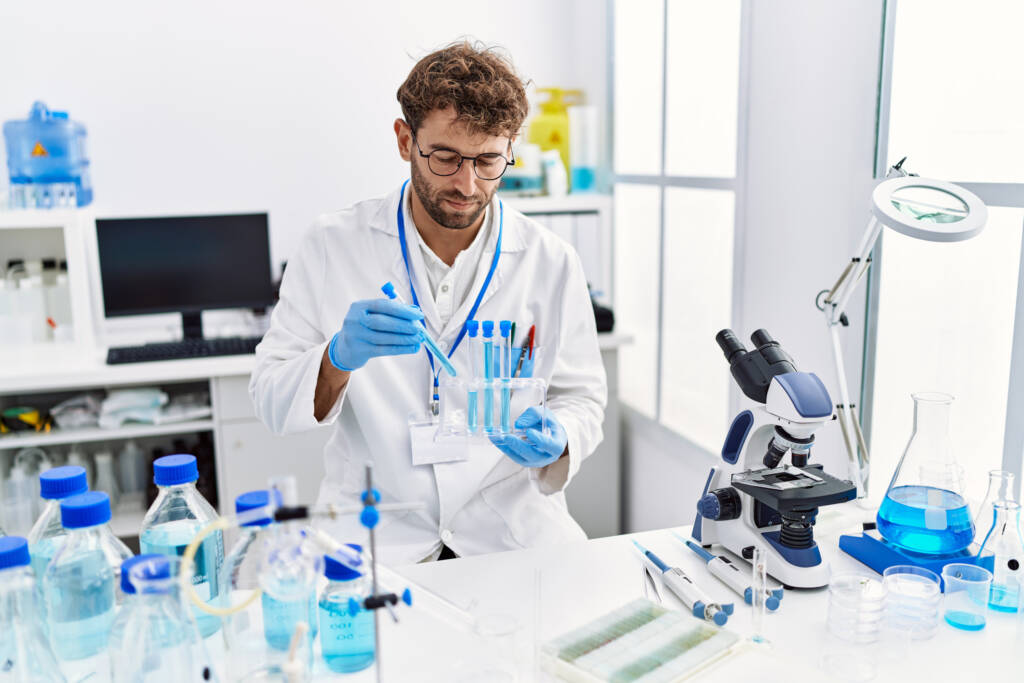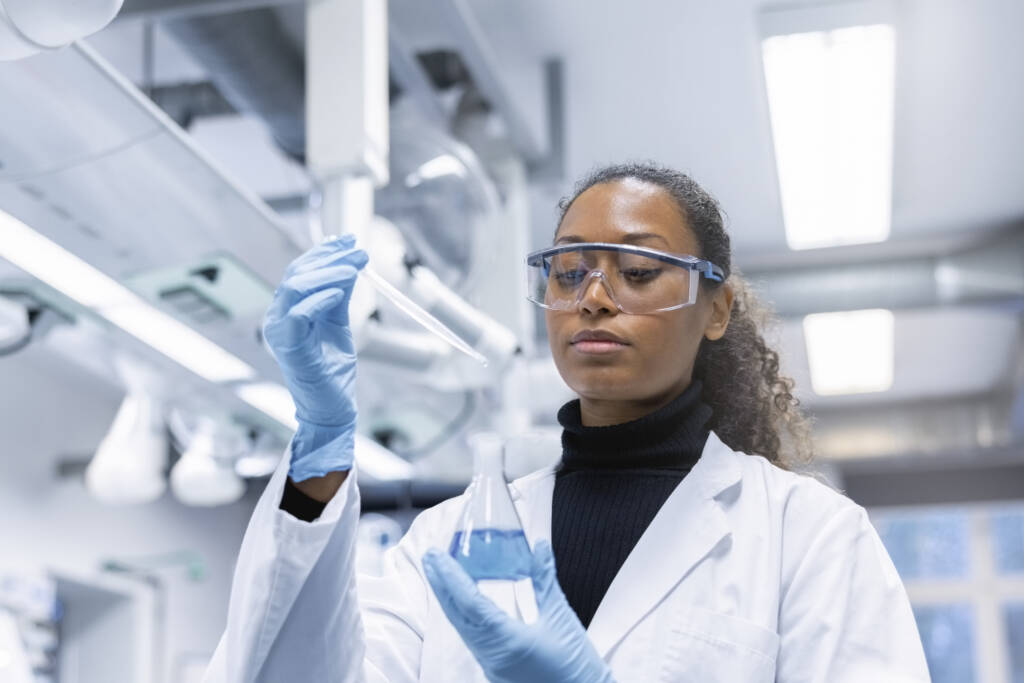
Adult Education Chemistry (Lab)

This course is designed as an interactive, 21st-century course focusing on Chemistry. Topics include the composition, properties, and changes associated with matter and their applications. As a foundation for the study of Chemistry, this course will explore the utilization of scientific inquiry, higher-order thinking, and real-world application through labs and a variety of assessments.
Cost: Students purchase 28 days of access for $105. Students may work as quickly through the content as they wish. Every 28 days, students may purchase an additional 28 days of access for an additional $105.
Major Topics and Concepts
- Scientific Method
- Lab safety
- Measurement
- Mass
- Volume
- Mixtures
- Atomic Structure
- Atomic Mass, Mass Number, Number of Protons, Neutrons and Electrons, and Isotopes
- Valence Electrons and Lewis Structures
- Electron Configurations
- Ions, Ionic Names, and Ionic Compounds
- Compound Lewis Structures
- Molecule names and Compounds
- Ionic vs. Covalent
- Chemical Reactions
- Balancing Equations
- Molecular Attraction
- Moles
- Molar Mass
- Atoms, Molecules, Formula Units
- Stoichiometry
- Limiting reactants and percent yield
- Molecular Geometry and Polarity
- Liquids
- Solids
- Plasmas
- Gas Basics
- Phase Changes
- Gas Laws
- Types of Solutions
- Aqueous Solution
- Concentrations of Solutions
- Molarity
- Colligative properties
- Reactions
- Reaction Rates
- Reaction Rate Laws
- Equilibrium
- Equilibrium expressions and constants
- Will any reaction occur?
- Specific Heat and Calorimetry
- Thermochemistry
- Entropy, Enthalpy, and Free Energy
- Equilibrium
- Le Chatlier’s Principle
- Acids and Bases
- Strong and Weak Acids and Bases
- pH
- Neutralization
- What is Energy?
- Nuclear Energy
- Law of Conservation of Energy
- Nonrenewable vs. renewable energy
- Electromagnetic Radiation
- Organic Chemistry
- Bio-Chemistry
- New Discoveries
Competencies
Matter
Students will demonstrate an understanding of matter by describing scientific measurement, explaining forms of energy, describing properties of matter, and summarizing changes in matter.
Atoms and Elements
Students will demonstrate an understanding of atoms and elements by summarizing atomic theory, describing characteristics of electrons, and explaining the elements of the periodic table.
Molecules and Compounds
Students will demonstrate an understanding of molecules and compounds by explaining characteristics of valence electrons, describing processes of bonding, and describing molecular structure and naming.
Chemical Reactions
Students will demonstrate an understanding of chemical reactions by describing the components and balancing of chemical equations, and comparing types of chemical reactions.
Stoichiometry
Students will demonstrate an understanding of stoichiometry by explaining the importance of the mole, describing the empirical formula, evaluating stoichiometry calculations, and explaining the application of stoichiometry.
Phases of Matter
Students will demonstrate an understanding of the phases of matter by describing particle motion and energy, explaining the phase changes of matter, and describing gas laws.
Energy in Reactions
Students will demonstrate an understanding of energy in reactions by describing energy in a system, explaining collision and chemical reactions rates, and explaining dynamic equilibrium.
Solutions
Students will demonstrate an understanding of solutions by summarizing properties of water, describing the concentrations of solutions, and explaining the properties of acids and bases.